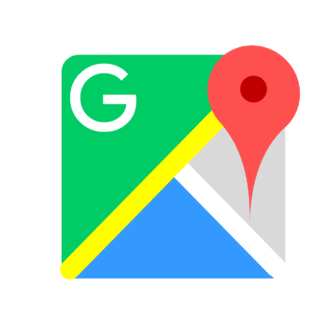 Most business owners know that SEO is important. An estimated 80-90% of consumers check online before buying a product. So if you aren’t doing SEO right, you’re leaving money on the table and it would pay to get some reliable, expert advice. If you have local customers though, what you really need is a local SEO expert.
Most business owners know that SEO is important. An estimated 80-90% of consumers check online before buying a product. So if you aren’t doing SEO right, you’re leaving money on the table and it would pay to get some reliable, expert advice. If you have local customers though, what you really need is a local SEO expert.
That doesn’t just mean an SEO expert in your area. It means someone who knows how to optimise a site for search terms that include location information. Like “yoga Newport” for instance, or the even more competitive, “web design Newport”.
Why Local SEO?
For many businesses, local SEO can be more effective than general, or “national” SEO. That’s especially true for SMEs, because lots of us serve specific areas.
For instance, even though I work remotely, I focus on serving firms in the UK — especially south east Wales and south west England. In fact, folks often prefer to deal with experts based in their own area. So I mostly provide web design, SEO and digital marketing services in the Cardiff – Newport – Bristol region.
With local service areas then, it makes sense to focus on optimising for search engine terms that reach local customers. Google thinks so too, so now it uses your site visitor’s location to promote results from local firms.
How Good Is Your Site’s Local SEO?
Here are 5 signs your business could use some help with its positioning in local search results. If your site performs poorly in any of these areas, or if you are unsure about any of them, it’s time to call in a local SEO expert.
Are Your Competitors Winning in Local Search Results?
Try running a search for your product and the town your business is based in. What shows up?
You? Or your competitors? If your competitors are all you see it’s time to step up your game. Standard “national SEO” tactics like optimising your content and general link-building may help. If your competitors are getting local SEO right though, your site will still lose out until you match them.
Do You Use “Google My Business”?

This isn’t the same as getting on Google’s search pages. Many people think that’s all that matters, so this step is surprisingly easy to overlook. It is really important for local SEO, though.
Google My Business lets you control your basic business information across Google services, including name, address and phone number (“NAP”) data. Google validates this as part of the sign-up process, then considers this definitive when deciding where your business is located. The info will show up on some searches for your business and links to Google Maps, too.
Setting up your Google My Business account is easy, and a great way to increase your visibility to a local audience. Adding some photos also helps with your business’s credibility and there’s even a spot for reviews. Customers love reviews, so they carry a lot of weight with Google. Even a few positive reviews on Google can mean a lot for local SEO.
Google My Business will also let you set up a very (very!) basic, free one-page website to display this information. Whilst this can be useful for brand new micro-businesses on a limited budget, it can’t compete with a real website (as you’ll soon see if you try it).
Have You Built Local Backlinks?
Link building is another important piece of the SEO puzzle. Linking your page to authoritative websites helps boost your credibility.
That’s true for national SEO as well as local, but the topics covered by the pages that link to you are also important. So naturally, links from well-respected sites about services in your area can boost your positioning in local searches.
Local directory sites are among the easiest links to get, though many provide only “nofollow” links. Whilst such links don’t (directly) improve search positioning, they comply with Google’s “don’t buy links that affect SEO” policy. They are often useful traffic sources however, and help local SEO in other ways.
How Consistent Are Your NAP Citations?
Say what? Don’t worry, it’s simpler than it sounds.
“NAP” just stands for “Name, Address, Phone (Number)”. A “citation” just means any reference to these details on a web page, usually on a directory of business listings.
NAP citations don’t have to be linked to your website at all to affect local SEO. That’s a good reason to get listed on local directories even if they don’t offer any kind of backlink.
Consistency is important, though. Put simply, if Google sees your business name, address and phone number presented in the same way on lots of directory listings, it will be more confident of your location. That confidence then boosts your local search positioning.
Inconsistent formatting — like using common abbreviations for “Road” or “Street” on some sites, but not on others — undermines that confidence. It’s just harder for the search engines to recognise that these refer to the same thing. The trouble is, this information may appear on some sites without your knowledge, so it often isn’t consistent.
Do You Get Lots of Great Reviews?
 Just as great reviews drive sales, poor reviews (or not enough of them) can lose you sales. That much is obvious. Did you know they also affect your search rankings, though? That’s especially true for local searches.
Just as great reviews drive sales, poor reviews (or not enough of them) can lose you sales. That much is obvious. Did you know they also affect your search rankings, though? That’s especially true for local searches.
Managing reviews can be tougher than it seems, though. Review sites know that unfair reviews happen, so many will let you respond to new reviews, to keep them in context. Still, prompting happy customers to leave reviews and regularly checking various review sites for them is time-consuming. Again, it helps to have the right tools — like my Easy Reviews management system.
Is Your Website Engaging Enough?
When people see your site in search results, does the description really encourage them to click? When they reach your site, do they stick around, browsing across several pages? Or do they bounce straight back to the search pages because they couldn’t find what they were looking for?
Such “behavioural” signals are especially important for local SEO. Something as simple as getting the description right can make the difference between the number 3 spot and the coveted number 1 spot.
You can get the relevant stats for your site by using Google Analytics. Figuring out how to improve them can be a bit more difficult, though. This can be a great reason to call in a local SEO expert.
So, Do You Need A Local SEO Expert?
Thankfully, you don’t have to invest in expensive tools or learn how to do all of this yourself. You just need to find a reliable local SEO expert — and you’re already in the right place for that!